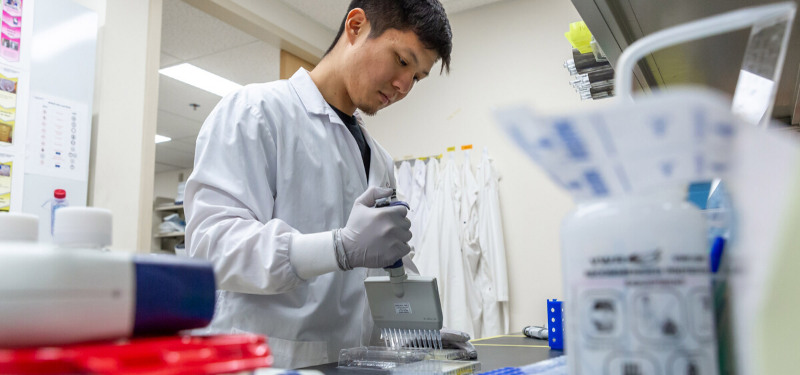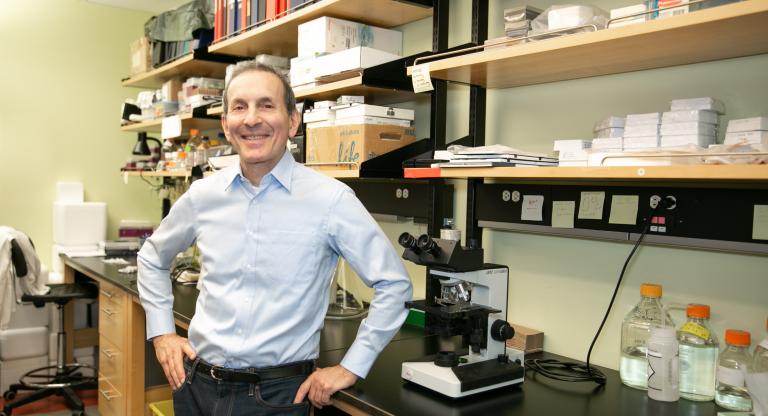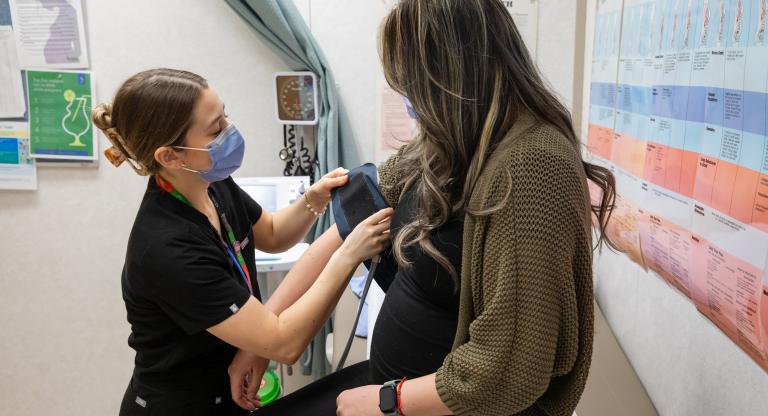Sinai Health antibody test detects past COVID-19 infection and quality of immune response

A blood test designed by a team of Toronto researchers can accurately detect whether a person was previously infected with the virus that causes COVID-19 — and whether their immune response is functional.
In a new study posted on the preprint repository bioRxiv, researchers found the test, developed at Sinai Health’s Lunenfeld-Tanenbaum Research Institute, or LTRI, can not only detect the presence of antibodies to the SARS-Cov-2 virus, but also evaluate whether these antibodies can block or “neutralize” the attachment of the viral Spike protein to the human protein, ACE2, which is critical in the infection process.
“This study goes well beyond the normal detection of antibodies and provides insight into the functionality of those antibodies,” said Anne-Claude Gingras, a senior investigator at LTRI and co-leader of the effort. “It takes a village to make important scientific advances and this project was no different.”
The team worked with a number of scientists and agencies across Canada, including Dr. James Rini at the University of Toronto, the National Microbiology Lab in Winnipeg, the Canadian Blood Services and the National Research Council of Canada.
“Using this test, we are able to quantitate the levels of receptor-blocking antibodies found in a given patient’s serum,” Rini said. “Information of this sort provides insight into how we might develop therapeutics and vaccines to combat COVID-19.”
A number of corporate donors, including Toronto investment firm QuestCap and RBC, have come forward to fund the test’s development. Although this has yet to been demonstrated conclusively for COVID-19, neutralizing antibodies hold great promise in the development of COVID-19 vaccines and other potential therapies.
Jim Woodgett, Koffler Director of Research at LTRI, said this assay for neutralizing antibodies provides a deeper understanding of the immune response to COVID-19 infection.
“This is a bit like the difference between finding a bunch of batteries versus knowing which ones actually work,” Woodgett said. “We don’t just want to know whether a person has had a prior infection but whether they generated a degree of immunity. This is why a functional assay is much more useful than a detection test.”
However, the researchers warn that it is still unclear how long those antibodies remain functional in fighting off reinfection.
Detecting “neutralizing antibodies” typically involves working with live virus, a requirement which greatly limits widespread screening. This form of testing does not use live virus, but instead uses purified fragments of the viral Spike protein and ACE2. This means the assay can be performed in standard immunology and clinical laboratories.
In the coming months, the team hopes to test up to 1,000 volunteers as part of the next phase of their research into a mass-scale serology test for COVID-19.












